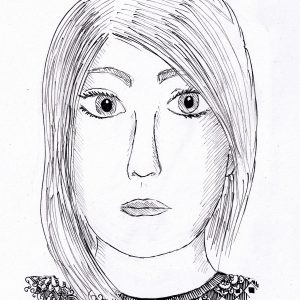This article is a continuation of the 2017 article Top 12 Statements that Aspergers Often Hear (and Hate). Initially, I didn’t intend to continue, but people are pretty “creative” when releasing more bizarre utterances that make autistic people cringe. At that time, we compiled 12 TOP sentences, which some people are still throwing at us. Since then, the number of would-be clever claims to our address has been growing. Today, when January 21st is the 21st year of the 21st century, we bring 21 of them. These are the most common statements which we collectively find alarming, and if we hear them from experts or the professional public, we must laugh.
21) “You are not autistic. You’re not autistic at all.”
Sure, all people on the autism spectrum must be like cookie-cutters.
20) “I know an autistic person, but they behave differently!”
I know one NT that is grumbling and unspontaneous to no end, then I see another one that enjoys everything. Another one works fast; another accomplishes even primitive tasks in hours. So it is not an argument that no one can be autistic.
19) “Everyone is a bit autistic.”
Well, they aren’t. It’s more or less like when a white man says, “Everyone’s a little black.” If that were the case, autism would never rise as a diagnosis because “normal” people would not notice “abnormal” people and would not begin to exclude them from the collective. How could they see? Well, no way… Sure, some people are a little non-autistic, even autistic, simultaneously, depending on the point of view, but these are exceptional cases.
18) “You can’t be autistic if you talk/read/study!”
Yes, even this is constantly happening. Once I can read, speak or even study, I can’t be autistic. I asked a high school teacher how many autistic people they had there, and she stared at me and told me with sincerity that autistic people appear only at elementary schools. Do I need to say more?
17) “Autism / ADHD does not exist.”
This statement always makes me recall a famous quote from the 1992 Czech film Inheritance: “I haven’t seen your c*nt, but I believe you have one!” On the other hand, I have to admit that such a person will save me a lot of work. Usually, I might even have fun with that person, but this is nonsense of such magnitude that nothing will help. It is said that a person who is dead (of course, if they were not, they would sue them for misusing the name!!!) admitted, before their death, that they invented ADHD to increase the sale of drugs. Well… actually, no.
16) “Autism is just an excuse for disobedience.”
Vice versa, for me, it is rude to say any of these or previous points or to be ableist, racist, and xenophobic. Or to condemn another person without trying to get to know them. Or to repeatedly do something you have been asked not to do just because you don’t mind the activity, with the words, “Jesus Christ, you’re always complaining!”
15) “A person with autism.”
I can’t say that this phrase bothers me per se. I don’t care at all, even if it’s contrary to my literal visual thinking (autism is no piece of luggage I can put away if I want to… and I even wouldn’t want to). Still, it bothers me when someone dictates to me (although it can be directed at anyone else) that I should talk about myself that way. Disability should be talked about in this way, I know it very well, but I am not disabled. That’s why I’m not too fond of it.
14) “A lack of eye contact is a manifestation of a liar.”
On the contrary, it is proven that liars stare even more in people’s eyes if they are at least good liars. Autistic people don’t look much in the eye because it’s intimate, like if we were naked. Would you talk to a naked person?
13) “Of course, being autistic is no good.”
I mistakenly saw this as a caption of a Facebook article that highlighted positive aspects of ASD. (Oh no, do they exist? Shocking!) I don’t know what made me angrier; whether it was with the certainty that the phrase “of course” appeared or the fact that this article did not come from a doubtful tabloid site, but from a scientific site, where, as it is well known, there is likely to be a significant number of autistic people. Oh yeah, seriously, I have no words.
12) “Have you tried detox, diet, yoga, a book about positive thinking, or something else?”
Yes, I have, all of it. No one denies that, for example, detox or special diets can have some positive effects. However, they are not miraculous elixirs, so please bear it in mind. For example, a stubborn attempt to think positively based on motivational books can be psychologically detrimental and throw the person into self-hatred because positive thinking will not solve problems with empathy, concentration, etc.
11) “Don’t act like a know-it-all / Yeah, you know best, don’t you?” (said ironically)
To compensate for the lack of social intuition (or its absence), nature has given Aspergers (but not all) much rational and analytical thinking with increased IQ and the ability to keep emotions away from their bodies, which is reflected in other areas than interpersonal interaction. As a result, we are often able to anticipate well in advance (or at least have a better aptitude to do so), as confirmed by a recent study at the University of Cambridge. It’s clear to me that it will sound egotistical, but I have such anticipation, which even quite a few people have confirmed. It even happens that, more and more often, my classmates and my mother come to ask me for advice.
10) “It’s just in your head; you simply need to have the will. If you tried harder…!”
Very similar to point number two. Yes, the soul is mighty, but not unlimitedly. If it were that easy, wheelchair users would walk, the blind would see, and the deaf would hear.
9) “You’re still thinking of and regretting yourself. You can’t stand anything.”
Many Aspergers lived without a diagnosis until adulthood (or still live without it and have no idea about autism) and had to go through life independently. Even if they needed, or still need, support and help due to problems with relationships and the poor situation in psychiatric and psychological care in the Czech Republic and Slovakia, they are not getting any of it. Some psychiatric drugs do not even help because they are poorly chosen and/or because the neurodiverse brain does not respond to them as the neurotypical one, not to mention the problems of misunderstanding, senses, ableism, etc., as I would just repeat myself. Nevertheless, I think a substantial proportion of Aspergers can withstand more than enough.
8) “Don’t be so negative.”
So, this is an absolute classic. There are probably more factors that make such an impression. Poor facial expressions, intonation, body language, pointing out the obvious (“we will all die one day”) can give the impression that we are negative. Not to mention the fact that bad experiences from the past (bullying, etc.) are also a sign of this, which can make us suspicious, distrustful, and sometimes even paranoid.
7) “What can you be tired of, please? I, on the other hand….”
Stop! I’ll tell you what we can be tired of. From the constant effort to play someone else and fit in, from the continual effort not to think, from the constant analysis of social situations, from the continuous frustration of misunderstanding, and from the continuous sensory attack and struggles with other associated mental problems that cannot be solved very effectively (such as ADHD, panic disorder, OCD, etc.). And to make things worse, numerous autistic people tend to have trouble with falling asleep or with sleep in general, so physical tiredness is added to it.
6) “You are so normal, though!”
An autistic person keeps hearing this all their life. Because of his social naivety and “strangeness,” they are the scapegoat of their peers. They are disturbed by changes that they cannot influence in any way. They find it difficult to establish and maintain relationships, have problems with their senses, are constantly frustrated due to misunderstandings from their surroundings, and have no one to share their interests with profoundly enough. As soon as they finally find out why they are different and start working on themselves (eye-contact exercises, small-talk exercises: non-binding social conversations, etc.), people will start telling them that they are entirely normal. It sucks!
5) “Don’t blame it on… autism / ADHD / spleens, etc.”
Yes, some people make excuses and make all their problems a diagnosis, often a false one. But these people find even bad weather convenient enough to find dozens of reasons why they can’t do something (and you’ll recognize them because of this). But it may not even be possible to make excuses for autism when it is classified as the most severe mental development disorder. We are just trying to explain to you our thinking, which leads to our, in your opinion, atypical behavior. We try to explain it precisely to understand each other and avoid unnecessary misunderstandings, quarrels, and frustrations on both sides. The fact that we are doing something different has a factual neurological basis: a different center in the brain reacts compared to the majority of the population. It’s our brains (and this also applies to non-autistic people) that control us, not us that control ourselves… that’s just the way it is.
4) “But otherwise, you look normal/healthy. I couldn’t even tell.”
I believe that some autistic people may be pleased when hearing it, but indeed not others (especially not those who are activists in the field of autism, they are often proud of their otherness). On top of that, autism is not a disease but a developmental abnormality or a disorder (according to the official definition), but certainly not a disease (it is treatable, and even a contagious disease can be treated at least partially).
3) “Asperger’s is only mild/weak autism (… it’s nothing, etc.).”
So, this statement is like a red flag to a bull. Asperger’s syndrome is not a lighter variant of the autism spectrum. On the contrary, an Asperger has a much harder life. I don’t want to compare it or play who is worse off, but… Because classical autists often have lowered intelligence and are more immersed in their worlds, Aspergers are very well aware of their difference thanks to their intelligence (often above average). They suffer from seeing others as weirdos, having problems with relationships, and your neurotypical communication. In addition, there is a lot of people that refute the diagnosis or believe that AS is just increased interest in the natural sciences and a little eccentricity, but otherwise, we are wholly neurotypical and need to make a little effort. This then leads to the development of mental problems such as depression, anxiety, panic disorder, etc.
2) “Don’t take everything so literally / don’t provoke, you know how it was meant.”
This statement is related to statement number one. Yes, we really sometimes think about how it was meant (non-literally, in a figurative sense), but it takes us a much longer time than you neurotypicals, it doesn’t always work out, and it still takes a lot of energy away from us. I try to think about everything that can be thought of and “point” and analyze (and then, of course, I hear statement number one), but I’m sometimes just mentally too tired, my brain switches to an intuitive autopilot, and I perceive it purely in a literal sense. Say to an autistic person, “don’t take everything literally.” You either don’t understand the essence of autism, ostentatiously ignore it, or, worse… you don’t believe in the correctness of the diagnosis.
1) “You push it too hard, don’t think about it.”
If I got money every time someone tells me this, I’d be rich. Because I don’t have that neurotypically intuitive thinking (interestingly, it’s described in the book How to Think Like Sherlock Holmes by Maria Konnikova), I practically can’t think in any other way than an analyzing robot. If we want to adopt at least a little and join your “normal” society, we have nothing else to do, and when, instead of feedback, we only hear that we are pushing issues too much, it is no wonder that our efforts to integrate are in vain.
I sincerely hope that I won’t have to write another article similar to this, but, as I mentioned in the introduction, people are just… “creative.”
_________________
Bc. Aneta Nováková, PG Dip. / photo: Pixabay.com / pic Hana Rosenthal/ Translated by Mgr. Ivana Recmanová











